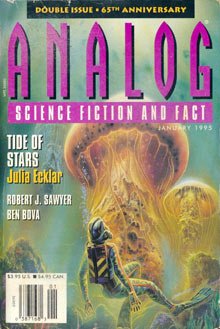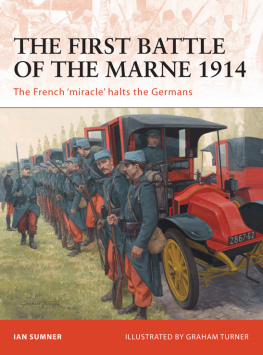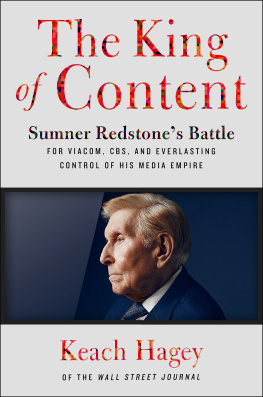"
I have been asked by the Society under whose auspices we are gathered to-night to tell you something of my personal experiences in the Battle of the Mine, or of the Crater, as it is sometimes called, and to supplement those experiences with some account of my life in a Southern prison.
At the time of the battle I was captain of Company A, Fourth Rhode Island Volunteers Infantry. The regiment to which I belonged was a portion of the Ninth Army Corps, under the command of General Burnside. The battle was fought on the 30th of July, 1864. But some months previous, as far back as January, 1863, the regiment, as also the corps, had been detached from the Army of the Potomac. Burnside, as you know, succeeded McClellan after the battle of Antietam in command of the Army of the Potomac; but he himself was removed from that command in January, 1863, and taken away from the Army of the Potomac. But the regiment to which I belonged ultimately became separated from the corps, and was on detached duty in the city of Norfolk, Virginia, and afterwards at Point Lookout, Maryland, where we were when the order came for us to rejoin the Ninth Corps, which had been brought back to the Army of the Potomac.
We arrived in front of Petersburg, at a point on the line where the Ninth Army Corps was stationed, on the Fourth of July, 1864. The two lines, our line and the enemy's, were at this point very near each other, from one hundred and fifty to three hundred yards apart, the distance varying according to the line of the works. We were ordered to encamp in some woods in the rear of our line of rifle-pits, and not far from them.
Shots from the enemy were continually coming into our camp, being fired at the men in the breastworks in front. We had to erect a barricade in the camp to protect ourselves, behind which we lived. Men of course strayed more or less away from the barricade, and every now and then some one would be wounded. Every three or four days it became our turn to take our places in the rifle-pits, where we had to stay forty-eight hours, and sometimes longer. We never went into the rifle-pits without some one being killed or wounded.
While we were encamped in this way, we heard of the plan of Lieutenant-Colonel Henry Pleasants, of the Forty-eighth Pennsylvania Infantry, who was a practical miner, and his men were largely men who had worked in the coal mines of Pennsylvania. He conceived the idea of building a mine under a certain portion of the enemy's works, with the purpose of blowing them up. At a certain point in the enemy's line, opposite the point where we were located, was a very strong earthwork, mounting several guns of large calibre, which did very much damage to our fortifications and troops. It was but one hundred and fifty yards from our line to that point. Back of it, on higher ground, was a hill called Cemetery Hill, regarded as a strategic point. If we could capture that hill, it was believed that much would be done to force General Lee out of Richmond. This fort stood in the way. Colonel Pleasants believed that he could remove it by his plan of blowing it up. The idea was that, if the fort could be removed by the explosion, the enemy being taken by surprise, opportunity would be afforded for our troops, already in position, to charge in through the open space thus made, and, taking advantage of the surprise on the part of the enemy, to push on to the crest of Cemetery Hill.
Colonel Pleasants met with no encouragement on the part of General Meade, in command of the Army of the Potomac; nevertheless, as General Burnside, his corps commander, approved of it, he was allowed to undertake it. No assistance whatever was afforded him by the Engineer Corps of the Army. He had to devise such methods as he could to accomplish his purpose, working at a great disadvantage all the time, but he finally accomplished the task. He began the work inside of our lines, under cover of a hill, at a point where the enemy could not perceive what was being done, and carried his tunnel through the earth the whole distance of one hundred and fifty yards, until he reached the fort. It was twenty feet beneath the surface of the ground at the point he reached. From thence he made a branch at right angles on either side, making it in the form of a letter T, as it were, at that point. In these branches he placed large wooden tanks in which powder was to be put. Four tons of powder were placed in these wooden boxes, and connected by a fuse at the entrance of the mine.
The 30th of July, 1864, was fixed upon as the time for the explosion to take place. It was intended to have it take place somewhere about three o'clock in the morning. Troops were gotten into position the night before under cover of the darkness, ready to charge as soon as the mine should be exploded.
I had been engaged for some days previous at the headquarters of the Third Division of the Ninth Army Corps, General Potter commanding, as judge advocate in connection with a court-martial. On the evening before the battle, the evening of the 29th, an order came to me to report to my regiment. I did so, and found that it was about to take its place in line of battle, ready to join in the charge on the morning of the next day. I had my supper in camp as usual, and we started to take up our position, carrying with us no food, nor anything in the way of clothing, except the clothes we had on.
The time arrived when the explosion was expected to take place, but no explosion occurred. It was learned that the fuse had gone out. An officer of the Forty-eighth Pennsylvania volunteered to go in and relight the fuse; and, as I remember, it went out a second time, and was relighted. Shortly before five o'clock, just as the sun was rising, a sound as of thunder was distinctly heard, and in a moment the earth at the point where the mine had been constructed was thrown upward, slowly mounting into the air to a height of some two hundred feet, and then, spreading out like a fan, fell back again into the excavation made by the explosion. The soil was of a clayey character, and enormous boulders of clay were thrown up and fell back around the opening, resembling in some respects the crater of a volcano; hence the battle has sometimes been called the Battle of the Crater. The men who were in this fort, and the artillery, and everything pertaining to the fortifications, huge timbers, ammunition, tents, and everything that would be naturally located there, were all thrown heavenward. The men, of course, were either killed or wounded, with hardly an exception. A large number of men were in the fort. It has been estimated by some that there were a thousand.
As soon as the explosion took place, the artillery all along the line on our side, some one hundred and twenty pieces or more, began firing at that point. The firing lasted some moments, and then the troops were directed to charge. It had been the plan of General Burnside to have his division of colored troops lead the advance. There was in the Ninth Corps at that time a division of colored troops. They had been drilled with the idea of taking the advance, but General Meade overruled Burnside's plan, and thought it best that the colored troops should not be put in that position. So General Burnside called together his division commanders, and told them of the change of plan on the very night before the battle, and allowed them to draw lots to see which one should take the lead. The lot fell to General Ledlie, the least efficient of the division commanders in the Ninth Corps.














